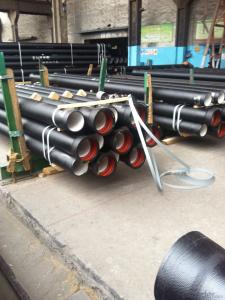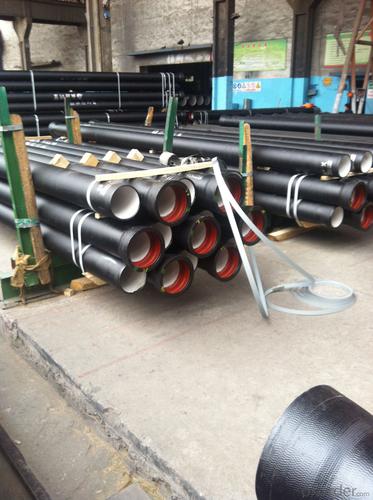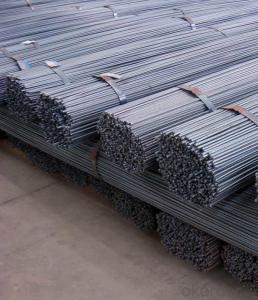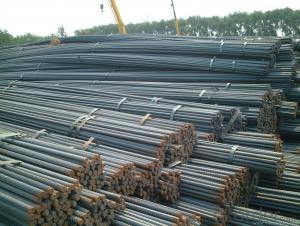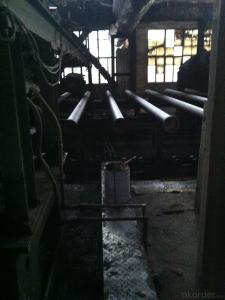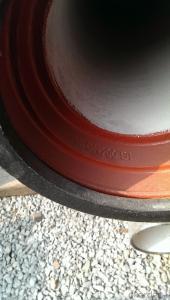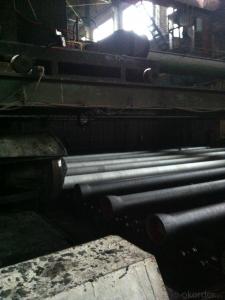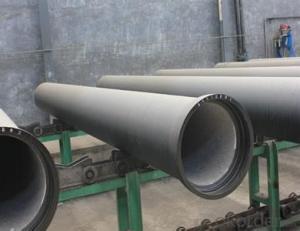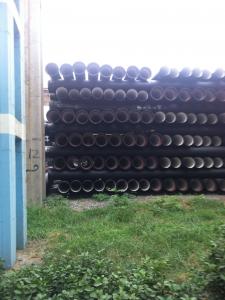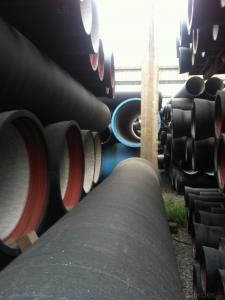DUCTILE IRON PIPE AND PIPE FITTINGS K7 CLASS DN500
- Loading Port:
- Tianjin
- Payment Terms:
- TT OR LC
- Min Order Qty:
- 23 pc
- Supply Capability:
- 3000 pc/month
OKorder Service Pledge
OKorder Financial Service
You Might Also Like
· Material : Ductile Cast Iron
· Size Range : DN 80mm to DN 2000mm
· Unit Effective Length : 6m or 5.7m
· Manufacture Standard: ISO 2531:1998/ EN 545:2006/EN 598:2007
· Annual capacity : 200,000 tons
· Coating Exterior: Zinc 130g/m2 according to ISO 8179-1 and bitumen coating 70 microns.
· Cement Interior: Portland Cement/ High Alumina Cement/ Sulphate Resisting Cement Lining according to ISO 4179
· Special requirements on external coating and internal lining can be applied
· We also provide accessories such as SBR/EPDM rubber gaskets, lubricant paste, pipe caps, PE sleeves, etc.
Additional Parts:
Each pipe is strictly inspected according to related standard to ensure permanently high performance.
Easy Installation at site and service free for life
Long Service Lifespan
Quotation will arrive you within 24hours once we get your inquiry.
We guarantee offering you a competitive price.
A copy of original inspection reports of pipes will be offered after shipment.
Photos of loading process will be sent to the customer after shipment effect.
We will follow-up the delivery progress after shipment effect and update to the customer on weekly basis.
- Q: What are the common methods for cutting ductile iron pipes?
- Cutting ductile iron pipes can be done using various methods, depending on the specific requirements and available tools. 1. For smaller diameter pipes, a hand saw with a carbide-tipped blade is commonly used. However, this method requires physical effort and can be time-consuming. 2. A more efficient option is using a reciprocating saw with a diamond or carbide abrasive blade. This power tool allows for faster cutting and requires less physical effort. 3. Another popular method is using a cut-off saw, also known as a chop saw or disc cutter. Equipped with a diamond or abrasive blade, this power tool provides precise and fast cuts, making it suitable for both small and large diameter pipes. 4. Cutting larger diameter ductile iron pipes can be achieved using a band saw with a bi-metal or carbide-tipped blade. This method allows for clean and precise cuts, but it may require specialized equipment and expertise. 5. In cases where other cutting tools are not available, a grinding wheel with a diamond or abrasive disc can be used for cutting smaller diameter pipes. It is crucial to follow proper safety precautions when cutting ductile iron pipes. This includes wearing appropriate protective gear and using clamps or vices to secure the pipe during cutting. It is also recommended to consult professionals or refer to manufacturers' guidelines for specific recommendations on cutting ductile iron pipes.
- Q: Are ductile iron pipes resistant to root intrusion?
- Yes, ductile iron pipes are generally resistant to root intrusion due to their strong and durable composition.
- Q: What are the meanings of cast iron pipe wall thicknesses LA, A and B respectively?
- Cast iron pipes (Cast, Iron, Pipe), cast cast pipe. Cast iron pipes are used for water supply, drainage and gas transmission lines. They include cast iron pipes and pipe fittings. Labor intensity is small. According to the casting method, it is divided into continuous cast iron pipe and centrifugal cast iron pipe, in which the centrifugal cast iron pipe is divided into sand mould and metal type two kinds. Divided into gray cast iron pipe and nodular cast iron pipe according to different material. According to the interface form, it is divided into flexible interface, flange interface, self anchored interface, rigid interface and so on. Among them, the flexible iron pipes rubber sealing ring; flange interface cast iron pipe flange fixed in the rubber pad, the flange gasket sealing; rigid interface cast iron pipe socket is large, straight pipe is inserted, sealed with cement, this technology has been basically eliminated.
- Q: What is the cost of ductile iron pipes compared to other pipe materials?
- Ductile iron pipes tend to be cost competitive compared to other pipe materials. While the exact cost can vary depending on factors such as pipe diameter and length, ductile iron pipes generally offer a good balance between cost and performance. They are often preferred in applications that require high strength, durability, and corrosion resistance, making them a popular choice in various industries including water and wastewater systems, oil and gas pipelines, and infrastructure projects.
- Q: Can the underground cast iron pipes be connected with clamps to form buttress?
- The hoop has the advantages of beautiful appearance, convenient operation, strong clamping force, good sealing performance, etc.. Mainly used for connecting and fastening vehicle, ship, diesel engine, gasoline engine, machine tools, fire, and other machinery and equipment, chemical equipment general nylon hose, plastic hose, hose cloth, water interface and seal etc..
- Q: Can ductile iron pipe be used for nuclear power plants?
- Yes, ductile iron pipe can be used for certain applications in nuclear power plants. Ductile iron pipe is known for its strength, durability, and corrosion resistance, making it suitable for various industrial and infrastructure projects. However, when it comes to nuclear power plants, specific factors need to be considered. One of the primary concerns in a nuclear power plant is the safety and reliability of the materials used. While ductile iron pipe meets many requirements, it may not be the ideal choice for critical applications such as transporting radioactive fluids or handling high-pressure or high-temperature systems within the plant. These applications often require materials with exceptional resistance to corrosion, stress, and radiation damage. In nuclear power plants, other materials like stainless steel, nickel alloys, or even specialized materials like Inconel are commonly used due to their superior properties. These materials offer better resistance to radiation-induced embrittlement, corrosion, and high-temperature and high-pressure conditions. Therefore, while ductile iron pipe may have its uses in non-critical applications within nuclear power plants, it is important to consult industry experts, engineers, and comply with relevant nuclear safety regulations to determine the most appropriate materials for specific applications within the plant.
- Q: How many casting methods are there in ductile iron casting? A 60*6 discus can not have sand holes. Its surface is smooth. What process can be used to make it?
- This is such a small piece, do not worry about shrinkage, mainly pay attention to sand hole and slag. With Disa wet molding line, a box of more pieces, suitable for mass production, defects will be relatively less. By using other methods (resin sand coated sand, etc.) can also be the main attention, don't type it, then the level of liquidity and relatively ductile iron, gray iron poor, sand and gas can not go up, sand holes or pores will spread in the discus plane.
- Q: Are ductile iron pipes compatible with other pipe materials?
- Yes, ductile iron pipes are compatible with other pipe materials. They can be connected to pipes made of various materials such as PVC, HDPE, steel, and more, using appropriate fittings and connectors.
- Q: Are ductile iron pipes resistant to frost heave?
- Ductile iron pipes are generally considered to be resistant to frost heave. Frost heave occurs when water in the ground freezes and causes the surrounding soil to expand and lift. Ductile iron pipes have high tensile strength and flexibility, which allows them to withstand the forces exerted by frost heave without cracking or breaking. Moreover, ductile iron pipes have a high resistance to impact and can handle significant external loads. This makes them particularly suitable for areas that experience freezing temperatures and potential frost heave. Additionally, the joints in ductile iron pipes are designed to provide a tight seal and prevent water infiltration, reducing the risk of freezing and subsequent frost heave. However, it is important to note that while ductile iron pipes are resistant to frost heave, they are not completely immune to it. Extreme temperature fluctuations, prolonged freezing conditions, or inadequate insulation can still pose a risk to the integrity of the pipes. Therefore, proper installation techniques, including appropriate bedding and backfilling materials, thermal insulation, and proper maintenance, are crucial to ensure the long-term performance and resistance of ductile iron pipes to frost heave.
- Q: Are ductile iron pipes resistant to environmental stress cracking?
- Yes, ductile iron pipes are resistant to environmental stress cracking. Ductile iron is a type of cast iron that has been treated with trace amounts of magnesium to improve its strength and ductility. This treatment makes ductile iron pipes highly resistant to cracking and damage caused by environmental stressors such as temperature fluctuations, soil movement, and corrosive elements in the surrounding environment. Additionally, the inherent strength and flexibility of ductile iron allow it to withstand high levels of external pressure and stress without cracking or failing. Overall, ductile iron pipes are a durable and reliable choice for various applications, including water and wastewater transportation, due to their resistance to environmental stress cracking.
Send your message to us
DUCTILE IRON PIPE AND PIPE FITTINGS K7 CLASS DN500
- Loading Port:
- Tianjin
- Payment Terms:
- TT OR LC
- Min Order Qty:
- 23 pc
- Supply Capability:
- 3000 pc/month
OKorder Service Pledge
OKorder Financial Service
Similar products
Hot products
Hot Searches
Related keywords
